Grooving to the circadian rhythm with the Chinese medicine organ clock, part one
You can choose to tell time with an analog or a digital clock, but one timing mechanism you can’t choose is your internal clock—and thank goodness for that, because it knows what it’s doing.
The internal clock—which adapts an organism’s physiology to the different phases of the day, regulating crucial functions such as hormone release and changes in blood pressure and body temperature based on the time it takes for Earth to do a full revolution on its axis—received well-deserved attention recently with the announcement of the awarding of the 2017 Nobel Prize in Physiology or Medicine for “discoveries of molecular mechanisms controlling the circadian rhythm.“ This is the collective term for the adaptations orchestrated by the internal clock. It is derived from the Latin circa or “around” and dies or “day.”
Fascinating as it is to know what makes the internal clock tick, if you will, this doesn’t give you any sort of guidance on what you can do in order to work with rather than against it. After all, your body’s biologically programmed behavior is one thing; your own modern life-influenced behavior is another. This two-part series will explore ways you can help your internal clock keep working like, well, clockwork, from the perspective of the Chinese medicine organ clock. (For a brief explanation of the difference between the organs of Chinese medicine and their counterparts in conventional medicine, see our blog post on acupuncture channels.) As you will see, this ancient clock—divided into 12 two-hour time periods that each correspond to an organ of Chinese medicine—aligns well with insights gleaned about the circadian rhythm from quantitative data on those crucial functions that are part of it.
5 AM to 7 AM | Waking Up and “Floating the Boat”
What better place to start on the Chinese medicine organ clock than with the time period for starting your day! Cortisol, a hormone that serves a variety of purposes including overseeing your body’s response to stress, is released during this time period to help you wake up. This time period corresponds to the Large Intestine, which hints at what your first task of the day is: If you don’t want your day to end up in the toilet metaphorically, this is the time period to go to the toilet, literally—not just for number one, but for number two. If you sleep through this time period, you run the risk of missing out on doing your business, the potential consequences of which include irritability, bloating, abdominal pain, and lack of appetite. However, not all is lost if your body is trained to go at a different time of the day. You can try drinking one cup of warm water during this time period to help “float the boat,” as this common euphemism in Chinese medicine goes.
7 AM to 9 AM | Eating a Warm Breakfast
After the important matters of the previous time period are attended to, there is another one of nature’s calls to answer: the need for food. This time period corresponds to the Stomach. It is the time period to eat breakfast—and no, coffee doesn’t count. In fact, having coffee on a regular basis might be counterproductive in the dry Central Oregon climate. There’s a reason why some big-name coffee shop chains hail from the Seattle area: It has plentiful “liquid sunshine,” making coffee’s drying properties medicinal in that region. That said, coffee does have a digestion-friendly characteristic by virtue of being warm. While cold has a contracting nature that can impede digestion, warmth supports digestion by promoting activity. Thus, having warm food is ideal for your digestion at any meal but especially at breakfast, as it kickstarts your digestion for the day.
9 AM to 11 AM | Digesting Breakfast (and Perhaps Complex Information)
This time period corresponds to the Spleen, a main organ of digestion; it has less in common with the spleen (of conventional medicine) than it does with the pancreas. To aid digestion during this time period, you can drink warm water or herbal tea. Fennel and ginger, for example, are well-known digestive aids; you can read more about them in our blog post on nine Chinese herbs commonly found in American kitchens. This time period is also well-suited for thinking-heavy tasks, as these depend on adequate nourishment and one of the Spleen’s specific roles in digestion is extracting nutrients from food.
11 AM to 1 PM | Eating a Leisurely Lunch
If you work somewhere with a break room, you might have noticed that it is particularly popular during this time period, which corresponds to the Heart. This is the time period to take a rest by eating lunch and closing your eyes for a few minutes (or longer if you can) to nap or meditate. All of the organs of Chinese medicine are associated with an animal in the Chinese zodiac, and for the Heart this is the horse because of the high level of activity they both exhibit; horses are so active that they can remain standing while sleeping. However, this high level of activity must be balanced out with lower levels of activity.
1 PM to 3 PM | Digesting Lunch
This time period corresponds to the Small Intestine, which, like the Spleen, is a key player in digestion. It has a direct relationship with the Bladder and influences urination. This is the time period to drink more than just a few sips of water.
3 PM to 5 PM | Exercising the Body or Mind
What goes in must come out…. This time period corresponds to the Bladder. After hydrating yourself in the previous time period, this is the time period for fluid output, not only through urination but through sweating. In fact, if you exercise during this time period your exercise routine might just overlap with the time of the day when reaction times are fastest. Because the Bladder channel has a relationship with the brain, you might also find that studying is particularly fruitful during this time period. Conversely, if fatigue sets in during this time period your Bladder might not be working optimally.
Note: Many thanks to Qì Gōng Master Liu He for her insightful lectures that helped inform this blog post.

